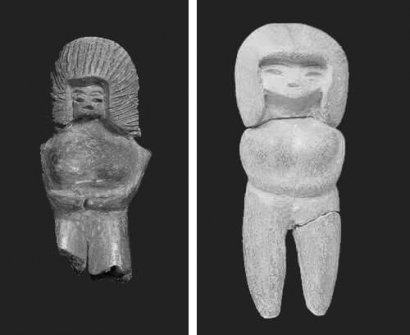 IP messaging, more commonly known as instant messaging, is a type of service that allows the exchange of text messages that arrive at the recipient at the same time.
IP messaging, more commonly known as instant messaging, is a type of service that allows the exchange of text messages that arrive at the recipient at the same time.
Instant messaging uses the IP protocol, being one more service that is provided through the Internet
In fact, it is not a unified service, unlike what happens with the web, but there are different providers, which fight to establish their own service as the most popular of the network of networks.
Despite the fact that these services have existed for years, it has been with the explosion of smart phones and the great success of WhatsApp that these services have become popular, breaking out a war to take over the market.
Historical services
- ICQ. The name is a play on words, the acronym for I seek you, in English, "I look for you." Scion of the Israeli company Mirabilis, it was the first to be really popular and widely used on the Internet. It had a client for Windows and Mac. It was acquired by AOL and integrated into its product and service offering, and it still survives today, although with much less popularity than it enjoyed.
- MSN Messenger or simply Messenger. Microsoft's response to solutions such as ICQ. It enjoyed great popularity, being available only for Windows and with a web-based client option. Towards the end of its days it was renamed Windows Live Messenger and eventually Microsoft decided to terminate it in favor of Skype.
- AiM. AOL Instant Messenger still exists, but with a much lower popularity than it had in the past.
- Yahoo! Messenger. The messenger of Yahoo !, a company that had enjoyed great popularity in the network of networks but that, subsequently, fell before new players.
- Google Talk. The predecessor of Hangouts.
- WhatsApp. The great shock in the field of instant messaging, which has led these solutions to gain popularity on smartphones. In fact, they say that it is the service that has "killed" SMS. Since the beginning of 2014 it has been part of Facebook. The username is defined through the telephone number, and the solutions to be able to work with it on a desktop computer do not stop being shadowed. Provides voice calling (VoIP) functionality.
- Hangouts. Google's alternative to WhatsApp, already born in a multiplatform environment, and can be accessed from both smartphones and desktop systems. It has the capacity of voice calls and videoconferencing between several users.
- Facebook Messenger. Instant messaging program linked to the well-known social network, but which can also be used separately, without needing to be a user of it. It has a mobile application and web interface.
- Skype. Initially a videoconferencing program, it has evolved adding functionalities, taking over from MSN / Live Messenger.
Current services

Future
The war is still open to take over the position of the most popular and used, hegemonic service, which WhatsApp currently holds, but which cannot be neglected and rest on its laurels, since they can pass it in front of it.
The immediate future of these services is a transition to voice and video conferencing gaining even more weight.
Photos: Fotolia - Monkey Business / ricardoferrando









